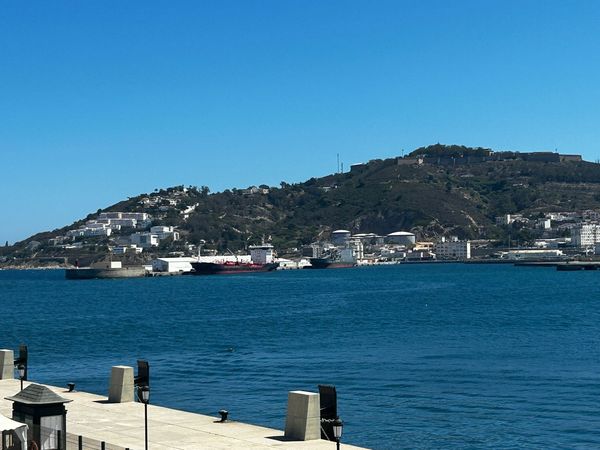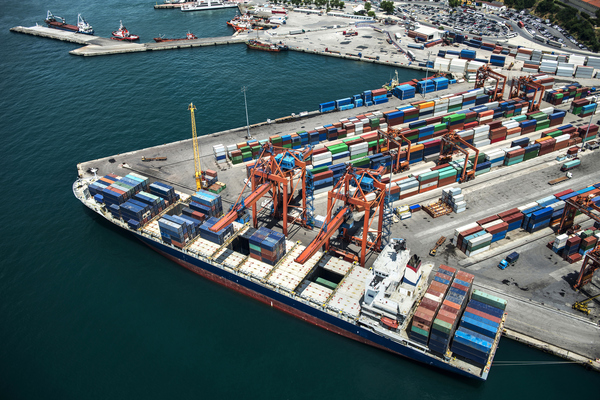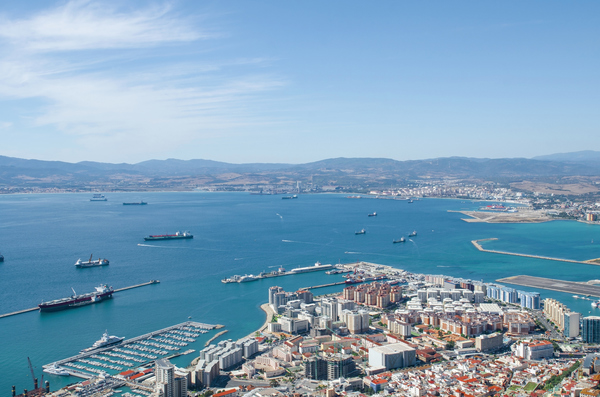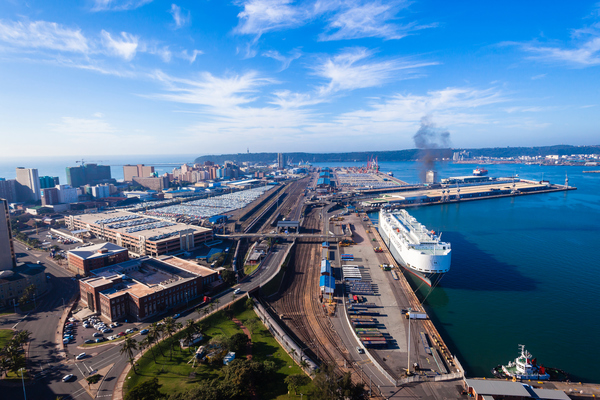Europe & Africa Market Update 10 Sept 2025
Bunker benchmarks at European and African ports have mostly fallen, and HSFO and VLSFO sees limited demand in Istanbul.
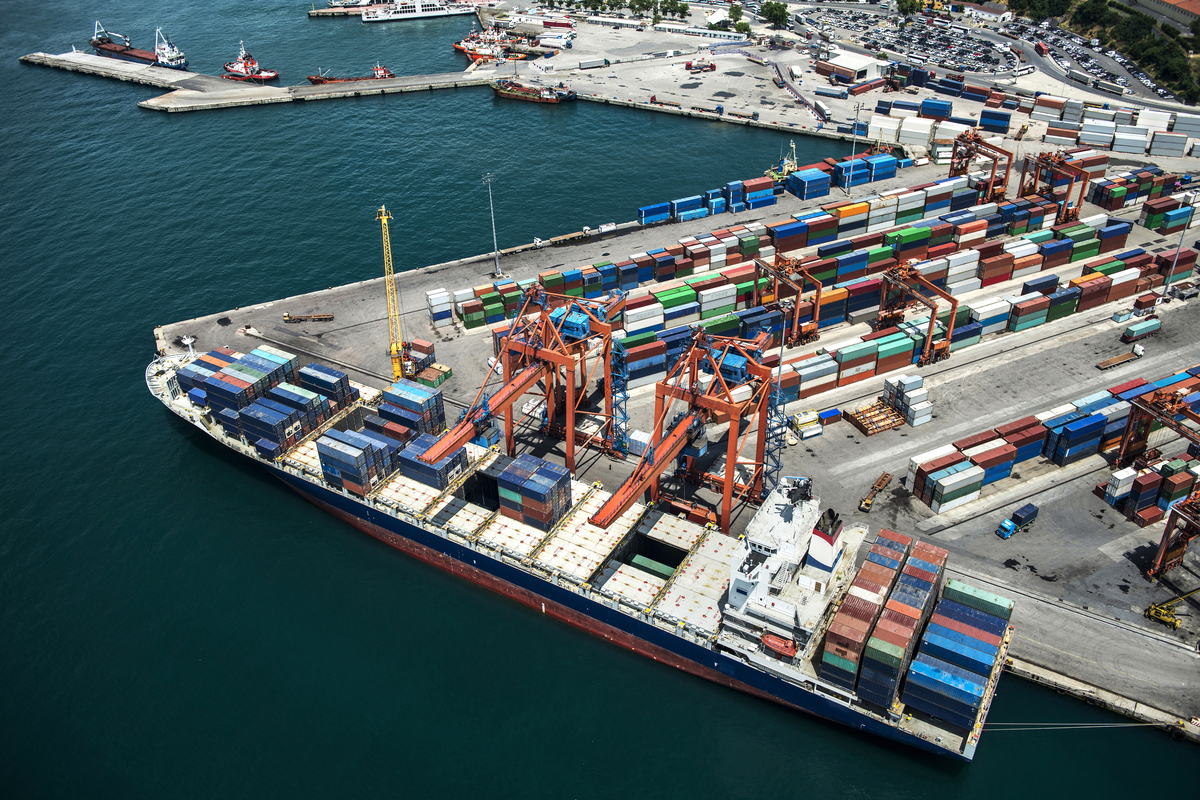 IMAGE: Aerial view of container port and ship in Istanbul Getty Images
IMAGE: Aerial view of container port and ship in Istanbul Getty Images
Changes on the day to 09.00 GMT today:
- VLSFO prices up in Durban ($10/mt), and down in Rotterdam and Gibraltar ($1/mt)
- LSMGO prices unchanged in Gibraltar, and down in Rotterdam ($4/mt)
- HSFO prices down in Rotterdam ($7/mt), Gibraltar ($4/mt) and Durban ($1/mt)
- Gibraltar B30-VLSFO premium over VLSFO up by $6/mt to $327/mt
Fuel benchmarks have mostly declined across the three major ports in the past session, except for Durban, where a sharp VLSFO price rise, coupled with a drop in HSFO, has widened the port’s Hi5 spread by $11/mt to $88/mt.
Gibraltar's LSMGO price remains unchanged, whereas in Rotterdam, it decreased slightly. A lower-priced 150-500 mt LSMGO stem was fixed at Rotterdam at $664/mt, which has weighed on the grade’s price, but a higher-priced 50-150 mt stem fixed at $673/mt may have limited the losses.
Meanwhile, VLSFO and HSFO fuel grades are seeing limited demand in Istanbul with lead times provided on firm enquiries, a trader told ENGINE.
Conversely, since the Mediterranean Emission Control Area (MedECA) came into force on 1 May 2025, the demand for LSMGO from buyers has been comparatively more, the trader added.
At least 285 LSMGO stems, 92 ULSFO stems, 79 VLSFO stems and 22 HSFO stems were fixed at Istanbul in the last three months, according to ENGINE’s fuel quality data.
Brent
The front-month ICE Brent contract has gained by $0.36/bbl on the day, to trade at $67.05/bbl at 09.00 GMT.
Upward pressure:
Brent crude’s price has moved higher after Israel launched an airstrike on Qatar’s capital city of Doha. The Israel Defense Forces (IDF) has claimed that the airstrike targeted senior Hamas leaders based in Qatar.
“This is the first strike in the region since the beginning of the nearly two-year conflict,” remarked ANZ Bank’s senior commodity strategist Daniel Hynes.
The strike did not hit any oil production or storage facilities, however, it has heightened concerns of a broader geopolitical instability in the Gulf region – a vital conduit for global energy flows, according to market analysts.
Oil got a further boost after Poland intercepted Russian drones targeting western Ukraine earlier today, Reuters reported.
This is the first instance of a NATO member engaging directly in the Russia-Ukraine conflict, which is now in its third year.
Downward pressure:
Brent’s price has felt some downward pressure due to mounting concerns of a supply glut in the fourth quarter of this year.
These concerns come as OPEC+ oil producers group continue to drive oil production higher. Last week, the coalition agreed to collectively increase supply by 137,000 b/d in October.
Notably, eight OPEC+ members introduced two voluntary output cuts in 2023 – 1.65 million b/d in April and 2.2 million b/d in November.
The group plans to fully unwind the 2.2 million b/d reduction this month, while last week’s decision begins phasing out the April cut, OPEC said.
“This [OPEC’s latest decision to increase production by 137,000 b/d] marks the reversal of cuts that were set to remain in place until the end of 2026, following the rapid return of the previous tranche of idled barrels over recent months,” Hynes said.
By Nachiket Tekawade and Aparupa Mazumder
Please get in touch with comments or additional info to news@engine.online

Contact our Experts
With 50+ traders in 12 offices around the world, our team is available 24/7 to support you in your energy procurement needs.

